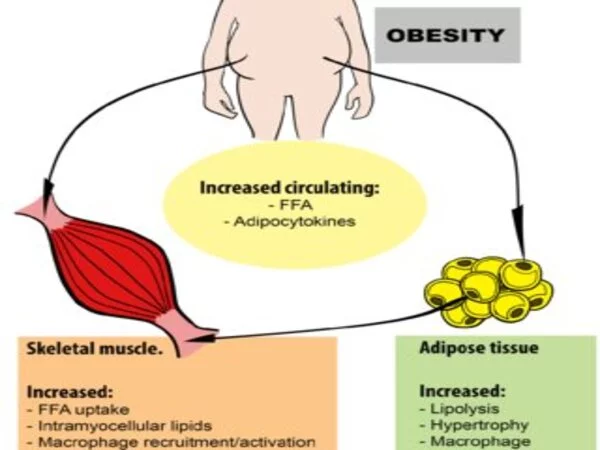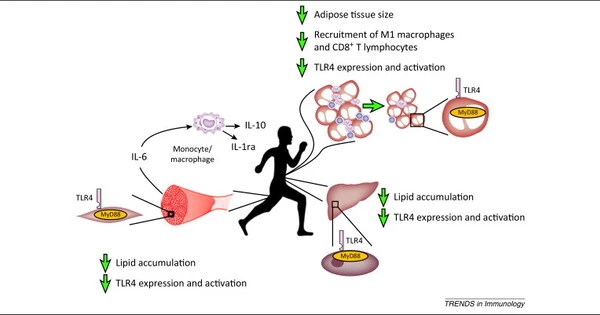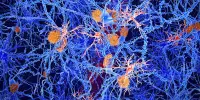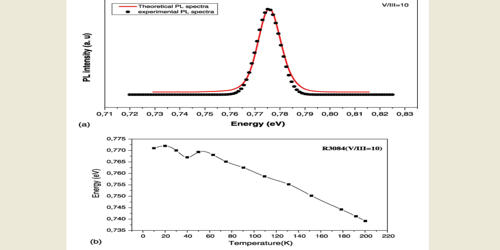Exercise is essential for muscle control, and its implications for diabetes and obesity are important. Diabetes and obesity are both metabolic illnesses that cause abnormalities in glucose and fat metabolism, and exercise can assist in alleviating these problems.
How do our muscles respond to exercise at the molecular level? Researchers from Helmholtz Munich and the German Institute of Human Nutrition Potsdam-Rehbrücke (DIfE) have discovered the cellular underpinnings and signaling pathways that are responsible for physical activity’s good impact on our overall health.
Regulatory T cells, a type of immune cell, are essential for optimal muscle function. These new discoveries are paving the way for precision therapies that target metabolic disorders such as obesity and diabetes, as well as muscle-related illnesses. Their findings were published in Cell Metabolism.
Obesity and type 2 diabetes are becoming a growing danger to world health. Overeating and lack of physical activity can contribute to the development of these illnesses. Exercise not only prevents diseases, but it also has several health benefits, including boosting the immune system.
These new findings will assist not just persons living with obesity or type 2 diabetes who want to improve their health through exercise, or patients suffering from muscle-related disorders, but also professional athletes.
Researchers from Helmholtz Munich’s German Center for Diabetes (DZD) and the German Institute of Human Nutrition Potsdam-Rehbrücke (DIfE) discovered new links between exercise, muscle function, and the immune system.
These new findings will assist not just persons living with obesity or type 2 diabetes who want to improve their health through exercise, or patients suffering from muscle-related disorders, but also professional athletes. Importantly, a greater knowledge of immune-muscle interaction can aid in the development of future precision immunological therapeutics for diabetes and other comorbidities.
Exercise has profound implications for diabetes and obesity. It helps regulate muscle function, improve glucose control, enhance fat metabolism, and positively influence various metabolic factors. Therefore, it is a crucial component of lifestyle interventions for preventing and managing both conditions.

Regulatory T Cells Ensure Proper Muscle Function
Although the beneficial effects of exercise training on metabolic health and the immune system are commonly known, the exact mechanisms of how physical activity affects muscle immune cells remained unknown until now. The team of researchers unraveled the molecular mechanisms by which a specialized subset of immune cells in the human body, the regulatory T cells (Tregs), control muscle crosstalk in a steady state, in response to exercise, as well as upon muscle injury. During exercise highly functional Tregs can be found in the muscles, which are important for proper muscle function, regeneration, and repair.
The authors demonstrate the importance of Tregs in controlling muscle function, strength, and regeneration after injury by manipulating them in a variety of ways. The study team discovers a key mediator of these effects. The interleukin-6 (IL6) receptor (IL6R) signaling pathway on T cells, which is involved in the immune response and other physiological functions, is crucial for Treg activity. For Treg-mediated muscle function modulation, the IL6R must be present on the surface of T cells.
These new findings may also provide a plausible molecular explanation for why anti-inflammatory medication targeting IL6R has been linked to muscle weakness as a side effect in the clinic. Finally, the new findings emphasize the necessity of studying the interactions between the immune system and metabolism in diseases such as diabetes and obesity. These findings will be critical in the future development of precision therapeutics targeting Tregs in specific habitats and situations.
















